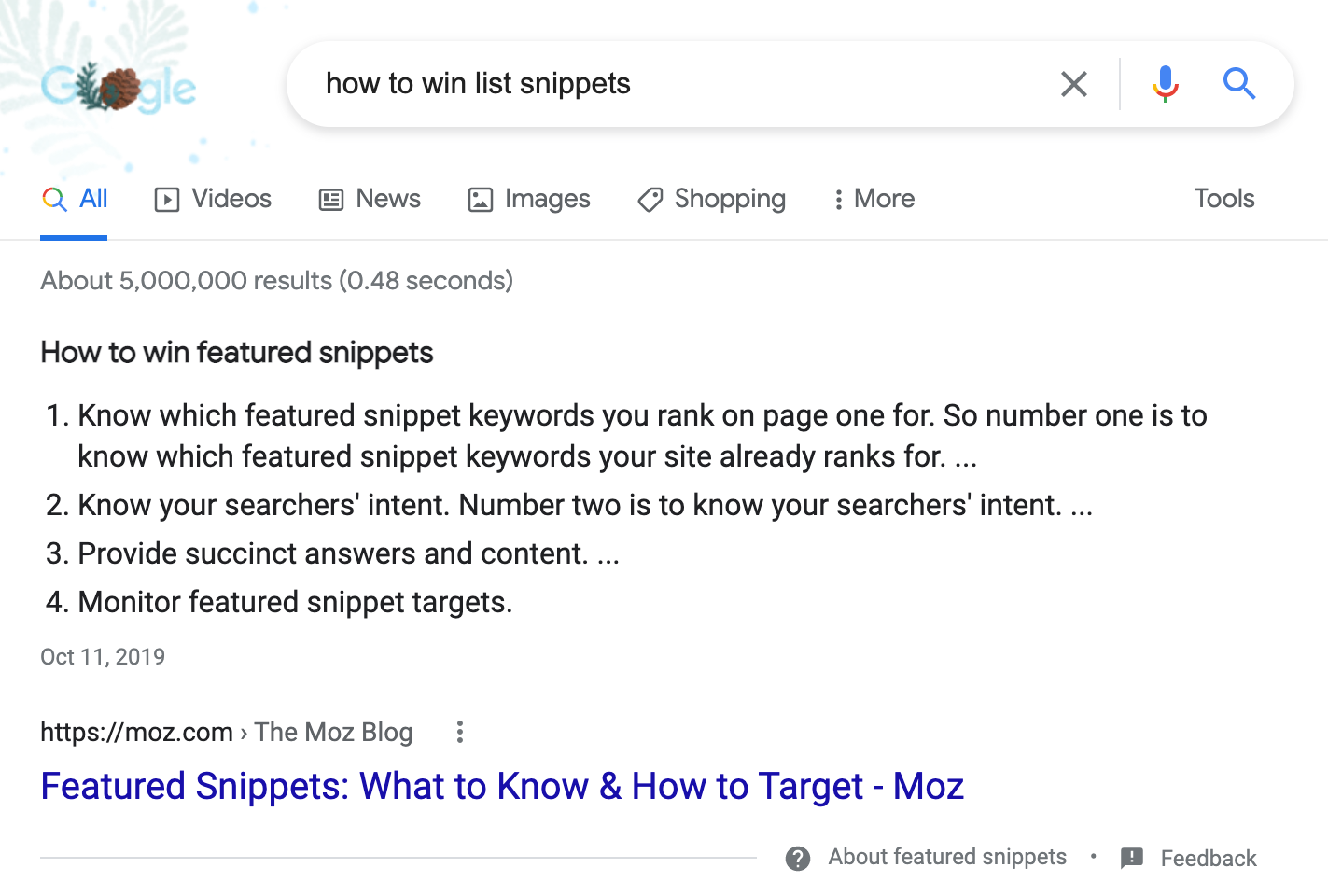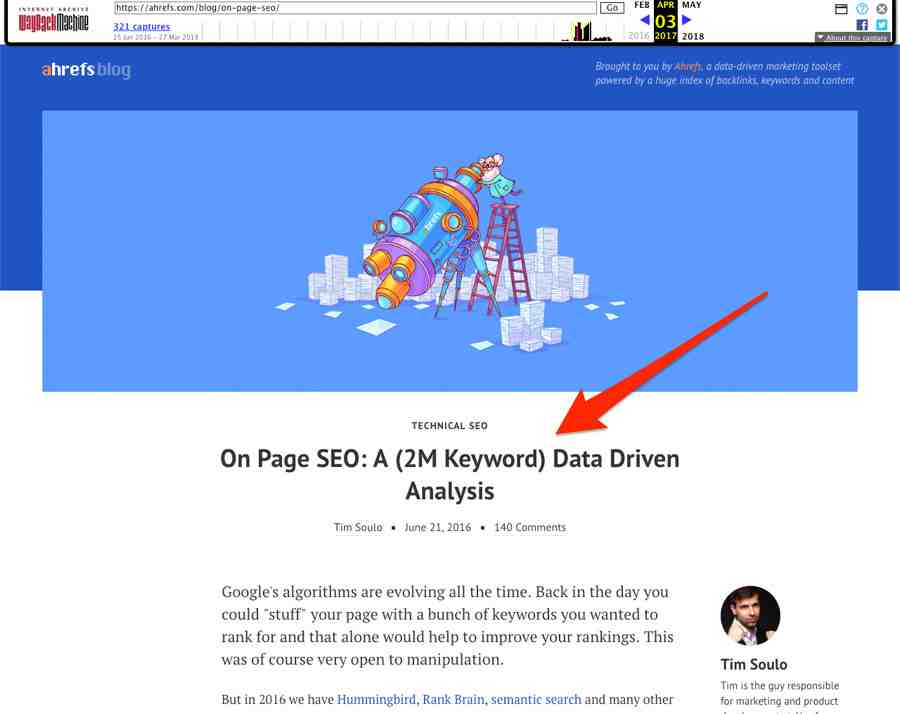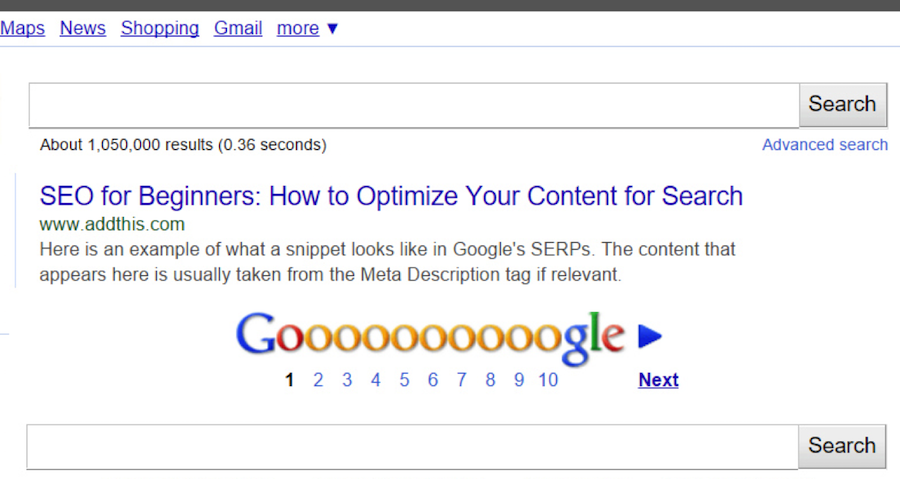SEO and content are powerful in their own right.
But it’s a combination of the two where you see the best results.
It’s not just about optimizing your content for search, but instead, taking a different approach and creating a unique SEO content strategy.
When we talk about optimizing your content for search, we often emphasize what you expect.
It will give you some results. And a few years ago, that was really all you had to do.
But today you have to do a lot more to get better results.
You need to intertwine SEO and content so that they are one in your strategy.
How to get better results from your content
Contents
- 1 How to get better results from your content
- 2 How to use SEO and content together
- 3 The best content is SEO content
- 4 What are the main types of SEO?
- 5 Do Blogs Help SEO?
- 6 What is blog optimization in SEO?
- 7 What is the first step of SEO?
- 8 What is freelance SEO writing?

Start by thinking about your audience.
If they’re different, you need to take that into account and talk to them in their language using the words they use, even if those aren’t your brand terms.
Everything you create should be designed to help your audience. If you’re not providing valuable content, they won’t come back and read more.
Your goal with all content development is to become a trusted source for your audience. When users know they can get the answers they need from you, they’re more likely to come back and share your content with others, which helps your business grow.
How to use SEO and content together

Once you’ve clarified who you’re creating this content for, it’s time to start brainstorming.
Look for keywords related to your core products or services. Look for questions that your ideal customers regularly ask. Questions are often a fantastic starting point for content development.
Step 1: Research topic
To research, you can use search functions and tools such as:
You want to look and see what people are asking about topics that are closest to your business.
What questions do they have? What information should they have before making a decision?
Step 2: Research keywords
When you have a topic idea based on research, you know people are interested because they are looking for information online.
Now it’s time to go back to the keyword research tool and see what keyword you want to target in your content.
Choose a keyword option that gives you a realistic chance of ranking. It should also be closest to your desired topic and products or services.
Step 3: Write
Now you’re ready to start writing. You have a topic that you know people are interested in and looking for. You have a keyword that you have researched and you know that your website has a good chance of ranking at the top of Google.
It’s time to create a great piece of content that provides value to your ideal customer. You want to focus on them, their needs and questions.
Don’t fixate on a certain number of words or paragraphs. Instead, focus on providing value, answering questions, and helping them.
You should have a good idea of your customers’ questions on this topic.
In short, tell a story, provide value, let the piece evolve naturally, and you’ll have better content.
Step 4: Optimize
Now is the time to optimize your content.
You have chosen your keyword and want to use it in the following SEO elements.
Be sure to follow SEO best practices when optimizing your content.
You should start seeing results as long as you’ve chosen a topic that you know people are interested in, a keyword that your website can rank for, written for your customer and provides value – not a lie.
The best content is SEO content

Simply creating content is not enough to win in SEO today. You need to create useful content for your audience.
Think of it as a unique strategy and use your SEO tools from the start, and you’ll get better visibility in the SERPs. Create a strategy that primarily focuses on your audience and their questions.
Your content strategy should include topics that are relatable, of interest to your audience, and helpful to your audience.
Link from one section to another, providing additional resources and information that your audience might want to dig deeper into, and you’ll help your overall content SEO efforts.
The opinions expressed in this article are those of the guest author and not necessarily those of Search Engine Land. The employed authors are listed here.
Rachel Lindteigen is the president and founder of Etched Marketing. Rachel has over 20 years of content writing, editing and strategy development and 10 years of experience in digital marketing. She works with many top e-commerce retailers and creates local and national SEO strategies. Rachel holds a bachelor’s degree in broadcast journalism from the Walter Cronkite School of Journalism and Telecommunications at Arizona State University and a master’s degree in marketing.
What are the main types of SEO?

So the different types of SEO are:
- Technical SEO.
- On-page SEO.
- SEO content.
- Off-page SEO.
- Local SEO.
- Mobile SEO.
- eCommerce SEO.
What are the main parts of SEO? The three main components of SEO are: Technical SEO. On-page SEO (or SEO SEO) Off-page SEO (or links)
What are the types of SEO?
There are three main types of SEO: Internal (on-page SEO) External (off-page SEO) Technical SEO.
How many types of SEO optimization are there?
The three types of SEO are: On-page SEO – Everything on your web pages – Blogs, product copy, web copy. Off Page SEO – Anything that happens outside of your website that helps your SEO strategy – backlinks. Technical SEO – Anything technical done to improve search rankings – Site indexing to help crawl robots.
What is SEO and its types?
The term SEO, search engine optimization, refers to improving the visibility of your site in Google search results for relevant keywords or search phrases. SEO helps in generating traffic to the site naturally.
What are the 7 types of SEO?
The seven different types of SEO in digital marketing are white hat SEO, on-page SEO, off-page SEO, local SEO, YouTube SEO, app page optimization, and technical SEO. Search engines play a huge role in ensuring more growth, visibility and it is possible to grow organically by using SEO best practices.
Do Blogs Help SEO?

Does blogging help with SEO? Blogging helps improve SEO quality by positioning your website as a relevant answer to your customers’ questions. Blog posts that use different on-page SEO tactics can give you more opportunities to rank in search engines and make your website more attractive to visitors.
How much do blogs increase SEO? With search engine optimization, the goal is to have a lot of pages indexed so that you are more likely to appear in a Google search. And according to DemandMetric, blogging generates 434% more indexed pages.
How often should you blog for SEO?
Blogging once a day is a good maximum, as most websites start to experience diminishing marginal returns after ~30 posts per month. And, without a well-disciplined content plan, blogging too often can actually create keyword cannibalization problems.
How often should you post a blog for SEO?
Most experts agree that blogging two to four times a week is the best way to see increased traction for your content. That translates to about eleven to sixteen posts per month, depending on how tuned in to the actual time of the week you post new content.
How often should you blog for SEO 2022?
It is recommended that blogs with over 100 posts post one to two times a month, while those with less than 20-30 posts should post at least twice a week.
How many blogs should you post a month for SEO?
For most businesses, 2-4 blog posts per month is perfect content. While you might not think a few posts a month is a lot, over time it adds up. This will be 24 new pieces of content on your website.
How do bloggers do SEO?
Make it easy to create an SEO-friendly website structure: For blogs, this means you can easily de-index pages and posts you don’t want search engines to index. Compressing images for speed: Page speed won’t make or break your rankings. But pages that load quickly can give you a slight boost.
Does Blogger have good SEO?
Blogging is good for SEO because it helps with a number of things that are important ranking factors. When you have a blog that is regularly updated with blog posts that are of high quality and on topics relevant to your audience, it can make a huge difference in how your overall website performs on search engines.
How does SEO work for blogs?
What is Blog SEO? Blog SEO is the practice of optimizing blog content, site architecture, and HTML code for search engines. Common tasks associated with blog SEO include on-page optimization, installing plugins, improving page load speed, and internal linking.
What is blog optimization in SEO?
What is Blog SEO? Blog SEO is the process of using technical and on-page SEO techniques to increase your blog’s organic search visibility. When using blog SEO, you have two primary goals: to ensure that search engines can find and understand your blog posts so that they can deliver them to relevant search engines.
How do I know if my blog is optimized for SEO? Another great feature is the competitor analyzer that will show you how SEO optimized your competitor’s websites are. To use this, you need to go to All in One SEO » SEO Analysis and click on the ‘Analyze Competitor Site’ menu item. Simply enter the competitor’s URL in the box and click ‘Analyze’.
Why is blog optimization important?
Your blog pages can get you more visibility in the SERPs and drive organic traffic. However, it takes a lot of effort to take advantage of a business blog (or marketing blog). A business blog requires constant optimization to attract visitors and encourage them to become customers.
What does it mean to optimize a blog?
Search engine optimization or SEO is incredibly important for marketers. When you optimize your web pages – including blog posts – you make your website more visible to people who use search engines (such as Google) to find your product or service.
Why is content optimization so important?
Content optimization is important because it ensures that your content is easily understood by search engines and users. The benefits of content optimization are high quality search engine friendly content that is easy to use and easy to find.
What is website optimization and why is it important?
Website optimization is the process of using tools, advanced strategies and experiments to improve the performance of your website, further increase traffic, increase conversions and increase revenue. One of the most critical aspects of website optimization is search engine optimization (SEO).
What does it mean to optimize a blog?
Search engine optimization or SEO is incredibly important for marketers. When you optimize your web pages – including blog posts – you make your website more visible to people who use search engines (such as Google) to find your product or service.
How do you optimize your blog?
To properly optimize your blogs, you need to start by researching the most important keywords. Keyword research, such as keyword analysis, helps you determine what topics your target audience is interested in based on search engine data.
What does it mean to optimize your content?
Content optimization is the process of ensuring that content is written in such a way that it can reach the largest possible target audience. The content optimization process should include ensuring the presence of related keywords, adding meta and title tags and relevant links.
What is the first step of SEO?
Defining relevant keywords is the first step in creating search engine optimized website content. By using keywords and building your topics around them, you will create content that answers Google searches.
What is freelance SEO writing?
Many entrepreneurs, small and private businesses, and individual affiliates hire freelance writers to write SEO (also known as “search engine optimization”) writing. SEO writing involves writing keyword-rich articles to help a client’s website rank higher in search engines and generate more website traffic.
What does an SEO writer do? An SEO content writer understands search engine optimization and knows how to write content that is informative, persuasive and relevant. However, they are not always effective when it comes to writing content intended to drive conversions.
How much do freelance SEO writers make?
According to PayScale, the national average salary for an SEO content writer was $41,153 in the United States as of this writing (July 2020).
Is SEO writing profitable?
Well-optimized content will make it easier for your blog to appear on Google and other search engine results. Therefore, the market demand for SEO freelance writers is huge. So, if you are an SEO freelance writer, you are in a profitable niche. Businesses will pay you more to write content that ranks higher on Google.
How much do SEO writers get paid?
SEO content writer and project manager salaries in the US range from $29,230 to $109,760, with a median salary of $56,010. The middle 60% of SEO content writers and project managers earn $56,010, and the top 80% earn $109,760.
How much do freelance SEO make?
How much do SEOs earn? The average SEO professional earned $81,103 in 2018, up from 2017. Agencies and freelancers were paid an average of $1,779 per client each month, an increase of $109 annually. Freelance and agency SEOs charge their clients an average of $119 per hour.
